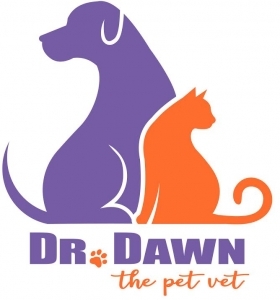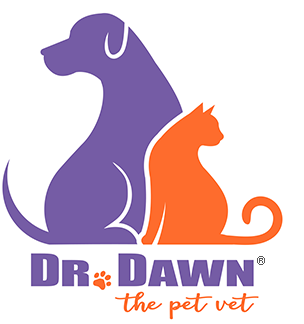We are fast approaching Independence Day. While this is exciting news for many of us, our pets often do not agree. Think of fireworks and sensory overload from the perspective of a cat, or especially a dog, with extra sensitive hearing, and you get the picture loud and clear. This is a holiday many of my patients, and clients, dread. Here are some tips to help lower the stress level, and avoid injuries.
1. If your pet has a history of noise phobias or anxiety, try to be near them that day and night. If you are not sure, and your pet is young, do the same. Thunderstorm phobias, and other noise phobias are common. Try to keep your pet in a place where he feels safe. Turn on a radio or TV to create white noise, and act as distraction or mask the loud booms. If your dog has been prescribed an anti anxiety medication in the past, contact your veterinarian to have your medication ready. Also, there are some non-prescription anti anxiety medications, and herbal remedies. Rescue remedies may be what turns down the dial just enough on low-grade anxiety. They are worth trying. Your vet will also recommend a type they prefer. I like Bach’s rescue remedy, or Homeopet for pets (available on the internet). There are other types similar to these also available. I also have one that I like, available only through veterinarians. Ask about it.
2. Dogs that are frightened are more likely to run for safety when frightened. If your family is going out to see a fireworks show, it’s best to leave your dog at home. If he must go with you, keep a firm grip on his leash at all times.
3. If you do bring your dog along, make sure your pet is microchipped, or at least wears a collar with proper identification. They can, and will, run off. Make sure they are easy to be found if that happens.
4. Other concerns this holiday center around the risks to pets of the firecrackers themselves. For some reason, some dogs react to fireworks by trying to eat them. Every year there are cases such as this in emergency veterinary clinics all across the country. The severity of illness related to firework ingestion varies with the specific ingredients of the type of firecracker eaten.
Some fireworks contain nitrates and chlorates. They can cause anywhere from mild gastrointestinal upset, to much more severe disease. Some pets can develop methemoglobinemia, which is a blood disorder that ends up making it difficult for oxygen to get to the body’s tissues. Symptoms to look for include shortness of breath and a blueish color to the gums.
If your brand of fireworks contains bariums salts, you may see neurologic signs as well. Signs might be stumbling, not acting alert.
Used fireworks are just as much of a risk, as the chemicals remain in the packaging. And, matches should not be left unattended either. They contain chlorates, which can cause the same problems, when ingested, as fireworks.
Basically, if you know or suspect your pet ingested fireworks, consult your veterinarian asap.
5. Potentially even worse than swallowing fireworks is when dogs chase them. Retrievers, in particular, like to chase thrown objects. They see them like a toy, such as a tennis ball. This can end disastrously.
Again, another reason to keep them out of the celebrations.
Hope you have a fun, and safe July 4th.
Dr. Dawn
Please share and subscribe here








